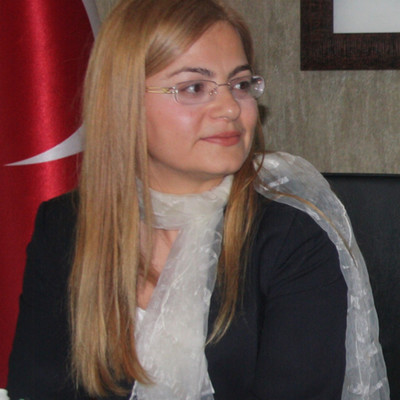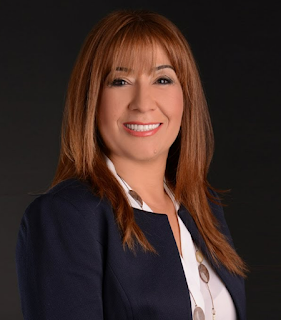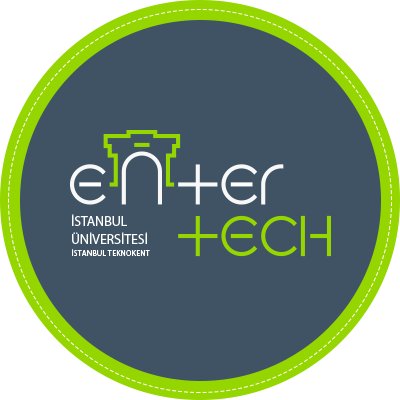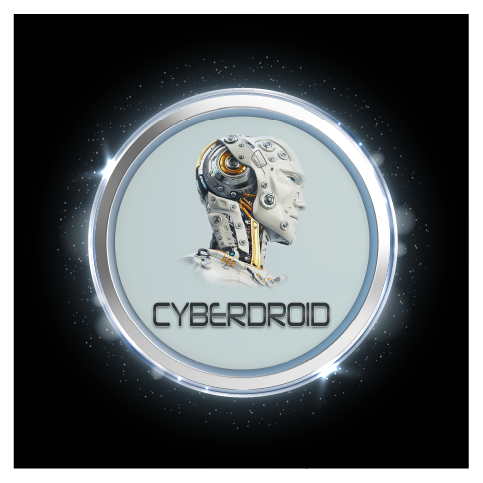Crew resource management or cockpit resource management (CRM)[1][2] is a set of training procedures for use in environments where human error can have devastating effects. Used primarily for improving aviation safety, CRM focuses on interpersonal communication, leadership, and decision making in the cockpit of an airliner. Its pioneer is David Beaty, a former Royal Air Force pilot and later a BOAC pilot who wrote his seminal book The Human Factor in Aircraft Accidents first published in 1969. Despite the considerable development of electronic aids since then, many principles he developed continue to prove effective today.
Crew resource management in the US formally began with a National Transportation Safety Board (NTSB) recommendation written by NTSB Air Safety Investigator and aviation psychologist, Dr. Alan Diehl.[3] during his investigation of the 1978 United Airlines Flight 173 crash. The issues surrounding that crash included a DC-8 crew running out of fuel over Portland, Oregon, while troubleshooting a landing gear problem.[4]
The term "cockpit resource management" (later generalized to "crew resource management") was coined in 1979 by NASA psychologist John Lauber who had studied communication processes in cockpits for several years.[5] While retaining a command hierarchy, the concept was intended to foster a less authoritarian cockpit culture, where co-pilots were encouraged to question captains if they observed them making mistakes.[5]
Crew resource management grew out of the 1977 Tenerife airport disaster where two Boeing 747 aircraft collided on the runway, killing 583 people. A few weeks later, NASA held a workshop on the topic, endorsing this innovative training.[6] In the US, United Airlines was the first airline to launch a comprehensive CRM program, starting in 1981.[7] By the 1990s, it had become a global standard.[5]
United Airlines additionally trained their flight attendants to use CRM in conjunction with the pilots to provide another layer of enhanced communication and teamwork. Studies have shown that by both work groups using CRM together, communication barriers are reduced and problems can be solved more efficiently, leading to increased safety.[8] CRM training concepts have been modified for application to a wide range of activities where people must make dangerous time-critical decisions. These arenas include air traffic control, ship handling, firefighting, and medical operating rooms.[9]
Overview[edit]
CRM aviation training has gone by several names, including cockpit resource management, flightdeck resource management, and command, leadership and resource management, but the current generic term, crew resource management, was widely adopted. When CRM techniques are applied to other arenas, they are sometimes given unique labels, such as maintenance resource management, bridge resource management, or maritime resource management.
CRM training encompasses a wide range of knowledge, skills, and attitudes including communications, situational awareness, problem solving, decision making, and teamwork; together with all the attendant sub-disciplines which each of these areas entails. CRM can be defined as a system which utilises resources to promote safety within the workplace.
CRM is concerned with the cognitive and interpersonal skills needed to manage resources within an organized system, not so much with the technical knowledge and skills required to operate equipment. In this context, cognitive skills are defined as the mental processes used for gaining and maintaining situational awareness, for solving problems and for making decisions. Interpersonal skills are regarded as communications and a range of behavioral activities associated with teamwork. In many operational systems as in other walks of life, skill areas often overlap with each other, and they also overlap with the required technical skills. Furthermore, they are not confined to multi-crew craft or equipment, but also relate to single operator equipment or craft as they invariably need to interface with other craft or equipment and various other support agencies in order to complete a mission successfully.
CRM training for crew has been introduced and developed by aviation organizations including major airlines and military aviation worldwide. CRM training is now a mandated requirement for commercial pilots working under most regulatory bodies worldwide, including the FAA (U.S.) and EASA (Europe). Following the lead of the commercial airline industry, the U.S. Department of Defense began formally training its air crews in CRM in the mid 1980s.[10] Presently, the U.S. Air Force and U.S. Navy require all air crew members to receive annual CRM training, in an effort to reduce human-error caused mishaps.[11][12] The U.S. Army has its own version of CRM called Aircrew Coordination Training Enhanced (ACT-E).[13]
Skills of CRM[edit]
The primary goal of CRM is enhanced situational awareness, self awareness, leadership, assertiveness, decision making, flexibility, adaptability, event and mission analysis, and communication. Specifically, CRM aims to foster a climate or culture where authority may be respectfully questioned. It recognizes that a discrepancy between what is happening and what should be happening is often the first indicator that an error is occurring. This is a delicate subject for many organizations, especially ones with traditional hierarchies, so appropriate communication techniques must be taught to supervisors and their subordinates, so that supervisors understand that the questioning of authority need not be threatening, and subordinates understand the correct way to question orders. Since the beginning of the 21st century European aviation legislation asks for the assessment of CRM skills of flight crew. Therefore, it was recognised that there was a need for a system to assess pilots’ CRM skills taking note of the delicacy of the matter.[14] Several systems exist to objectify performance in CRM skills; an example widely used in Europe is NOTECHS.
Communication[edit]
Cockpit voice recordings of various air disasters reveal first officers and flight engineers attempting to bring critical information to the captain's attention in an indirect and ineffective way. By the time the captain understood what was being said, it was too late to avert the disaster. A CRM expert named Todd Bishop developed a five-step assertive statement process that encompasses inquiry and advocacy steps:[15]
- Opening or attention getter - Address the individual: "Hey Chief," or "Captain Smith," or "Bob," or whatever name or title will get the person's attention.
- State your concern - Express your analysis of the situation in a direct manner while owning your emotions about it. "I'm concerned that we may not have enough fuel to fly around this storm system," or "I'm worried that the roof might collapse."
- State the problem as you see it - "We're showing only 40 minutes of fuel left," or "This building has a lightweight steel truss roof, and we may have fire extension into the roof structure."
- State a solution - "Let's divert to another airport and refuel," or "I think we should pull some tiles and take a look with the thermal imaging camera before we commit crews inside."
- Obtain agreement (or buy-in) - "Does that sound good to you, Captain?"
These are often difficult skills to master, as they may require significant changes in personal habits, interpersonal dynamics, and organizational culture.
"This is stupid!"[edit]
In certain cases during critical emergencies, the affirmative statement method may not be appropriate, and it may be necessary to call attention to a danger even when the solution is unknown.
"This is stupid" may be replaced with a less "charged" callsign such as "Red Flag", to indicate an immediate review of the situation is needed, without accusing anyone in particular, as the intention is to focus on actions and plans, not to insult anyone's competence.
Personal statements like "You are stupid" can cause the listener to become defensive and make the entire method counterproductive.
Sender errors[edit]
There are several common errors that a sender can make, which might cause a message to be misinterpreted.[16]
- No frame of reference - If the receiver is missing context for the message, they are less likely to understand accurately.
- Omission of information - The sender neglects to clarify important parts of the message, leaving ambiguity.
- Inserting bias - The sender inserts a personal opinion into a message that should be unbiased facts. This can cause the message to seem less trustworthy, or mislead the receiver about critical facts.
- Ignoring body language - It is quite possible to send an unintended message with body language and tone, or lack thereof in a medium that does not properly convey it.
- Being unwilling to repeat information - Especially in the presence of distraction, it is easy for a receiver to miss something important.
- Disrespectful communication - It is hard to think logically about a message presented in a hostile way.
Receiver errors[edit]
- Listening with prejudice - If the listener's mind is already made up before the sender speaks, vital details may be missed.
- Poor preparation - Listening is an active and conscious process that must be treated as such.
- Thinking ahead of the sender - Extrapolating, putting words in the sender's mouth. The sender saying "Hear me out!" may be a sign of this.
- Ignoring nonverbal cues - Failure to understand the full intended effect of the message.
- Failure to ask for clarification - When in doubt, rather than try to guess what the sender means, simply asking can be a lot more effective.
- Disrespectful communication - Replying with a knee-jerk insult will degrade communication.
Leadership and followership[edit]
Both leadership and followership are needed at different times, and both present unique challenges and skill requirements.
Leadership[edit]
Authority[edit]
Legitimate authority in CRM is reinforced through four main points:
- Ensuring mission safety - The leader is ultimately responsible for crew safety, although safety requires active participation by all members.
- Fostering respectful communication
- Establishing clearly defined goals
- Including crew input
Mentoring[edit]
A leader is responsible for mentoring a crew, both to maintain a high level of technical competence, and to build trust, which is critical for effective operations.
A lack of trust may have been a major factor in the tragedy ensuing from the Mann Gulch Fire.[17]
Conflict resolution[edit]
Conflict can arise on any team, and can be healthy or unhealthy depending on how it's handled. Effective listening, remaining emotionally uninvolved, and a focus on understanding the cause of a situation can help a leader resolve conflicting voices.
Mission analysis[edit]
A leader is responsible for understanding the task at hand, and all its potential risks and benefits, and developing plans to safely meet the objectives.
Followership[edit]
Far from a passive process, being an effective follower requires a conscious effort. CRM empowers followers to challenge a leader when needed, but this right is given with the expectation that followers must act responsibly and continually develop their skills.
These responsibilities include, but are not limited to:
- Respecting authority
- Being safe
- Keeping one's ego in check
- Balancing assertiveness and respect
- Demanding clear assignments
- Reporting on status of work honestly, including any problems
- Publicly acknowledging mistakes
Self assessment[edit]
The condition of every team member is important to success. A follower must be able to assess their own condition, determine where they need improving, and in some cases, avoid performing tasks that they are in no condition to perform. Many procedures such as the IMSAFE checklist have been developed to assess if a crew member is properly fit to perform his or her duties.
To perform at their best, followers must be:
- Physically fit
- Hydrated
- Nourished
- Rested
- Stress-free
- Healthy (physically and mentally)
In addition, there are many sources of stress that can cause a crew member to perform at less than their best. It is important to be aware of stressors that may be affecting you.
Sources of stress can include, but are not limited to:
- Hunger
- Dehydration
- Fear of punishments or desire for rewards
- Noise
- Anxiety
- Drugs
- Temperature extremes
- Existing stress outside of the job
- Poor health (physical or mental)
Desire to make the leader succeed[edit]
Even the best leaders have finite capacity. An example is the limited capacity to remember more than a certain amount of data. By understanding this, and having a genuine desire to assist the leader, a follower can make up for this limitation by referring to checklists or other references.
A follower is expected to put the mission ahead of their ego, and make success a higher priority than "being right", while still coming forward about any problems they may encounter.
Recognizing hazardous attitudes[edit]
Hazardous attitudes can lead to unsafe behavior, which is why it is important to reframe the hazardous thoughts to allow for clearer judgement. "PHAK Chapter 2" (PDF).
After recognizing a thought, plan, or attitude as potentially dangerous, a crew member should remind themselves of the corresponding antidote. Antidotes should be memorized so they automatically come to mind as needed.
The number of attitudes can vary in different publications, but is generally between five and seven.
Hazardous attitudes[edit]
- Anti-authority: "Don’t tell me." - "Follow the rules. They are there for a reason". The rules are quite often "written in blood", in response to a major incident.
- Impulsivity: "Do it quickly." - "Not so fast. Think first." As the soldier's saying is said to go, "Slow is smooth and smooth is fast".
- Invulnerability: "It won't happen to me." - "It could happen to me." Even if someone has done it a thousand times before. Just because luck has been on one's side before doesn't mean that one doesn't need to be careful.
- Machismo: "I can do it." - "Taking chances is foolish." Even experts can fall victim to things they didn't expect.
- Resignation: "What's the use?" - "I'm not helpless. I can make a difference." History is full of cases in which people have survived seemingly impossible odds.
- Pressing: "Let's hurry up so we can go home"[16] - "It's worth doing right the first time." Pressing is related to impulsivity, but often driven by a desire to return to something other than the task, the proverbial "roast in the oven".
- Airshow syndrome: "I'm going to look amazing!" - "Let's get the job done right". Doing the job done right often involves mundane things that don't "make a good show", but doing the job wrong will look much worse.
Situational awareness[edit]
Loss of awareness of what's happening around you can easily end in tragedy. Situational awareness must be a constant state of understanding what's happening, combined with the alertness to notice changes.
Indicators of loss of situational awareness[edit]
- Ambiguity - The information used to make decisions is not complete enough, and is open to multiple interpretations.
- Distraction - Attention is drawn away from the original task.
- Fixation - Focusing on one item or detail to the exclusion of the big picture.
- Overload - Too busy or overwhelmed to keep track of what's happening.
- Complacency - A sense of comfort that can blind a crew member to approaching danger.
- Improper Procedure - Operating outside of standard procedure without justification.
- Unresolved Discrepancy "Cockpit Resource Management" (PDF). - A failure to resolve conflicting information. "The GPS says Boston, but I don't see a city!".
- Nobody Flying the Plane - Often cited as "self explanatory", a situation where nobody is properly in charge of operations.
Error management[edit]
Errors cannot always be prevented, but multiple "Barriers" can be used to stop a simple error from becoming a full on disaster."Crew Resource Management" (PDF).
Techniques[edit]
- Acknowledge that we are error prone - This does not excuse incompetence, it simply recognizes that anyone, at any time, can make a mistake, despite the best of intention and training.
- Maximize barriers - Use redundancy, Standard Operating Procedures (SOPs), and avoid being understaffed, so that one person's mistake does not grow to a major situation.
- Communicate risks - Speak up about any source of danger, but also about anything that might prevent you from detecting an error, or might make you more likely to make an error, even if it has not yet led to any direct errors.
- Follow SOPs - A study found that pilots ignoring an SOP had 1.6 times the risk of making another mistake.
- Is this action SENSIBLE? - Think logically, not emotionally. Ask yourself questions about what might be lost and gained before committing to an action.
Case studies[edit]
United Airlines Flight 173[edit]
United Airlines Flight 173 crew was making an approach to the Portland International Airport on the evening of Dec 28, 1978 when they experienced a landing gear abnormality. The captain decided to enter a holding pattern so they could troubleshoot the problem. The captain focused on the landing gear problem for an hour, ignoring repeated hints from the first officer and the flight engineer about their dwindling fuel supply. Only when the engines began flaming out did he realize their dire situation. They crash-landed in a wooded suburb of Portland, Oregon, over six miles short of the runway. Of the 189 people aboard, two crewmembers and eight passengers died. The NTSB made several recommendations in their report including:
The NTSB Air Safety Investigator who wrote this recommendation was aviation psychologist, Dr. Alan Diehl.[18] He was assigned to investigate this accident and realized it was similar to several other major airline accidents including the Eastern Airlines Lockheed-1011[19] crash into the Everglades and the runway collision between Pan Am and KLM Boeing-747s at Tenerife.[20]
United Airlines Flight 232[edit]
Captain Al Haynes, pilot of United Airlines Flight 232, credits Crew Resource Management as being one of the factors that saved his own life, and many others, in the Sioux City, Iowa, crash of July 1989:
Air France 447[edit]
One analysis blames failure to follow proper crew resource management procedures as being a contributing factor that led to the 2009 fatal crash into the Atlantic Ocean of Air France Flight 447 from Rio de Janeiro to Paris.
The final report concluded that the aircraft crashed after temporary inconsistencies between the airspeed measurements—likely due to the aircraft's pitot tubes being obstructed by ice crystals—caused the autopilot to disconnect, after which the crew reacted incorrectly and ultimately caused the aircraft to enter an aerodynamic stall, from which it did not recover.[22] The Captain had left the cockpit to take a rest break, leaving control in the hands of the copilots. When the two copilots were operating the Airbus around 02:11:21, the pilots did not communicate with each other about who was in control of the plane.
Following recovery of the black box two years later, various independent analyses were published, both before and after the official report was issued by the BEA, France's air safety board. One was a French report in the book "Erreurs de Pilotage" written by Jean-Pierre Otelli [23] [24] [25] [26] which leaked the final minutes of recorded cockpit conversation. On December 6, 2011, Popular Mechanics published an analysis of the accident including a translation of the leaked conversation accompanied by a step-by-step commentary.
Speaking about the actions of the two copilots in the cockpit in the minutes before the aircraft crashed into the ocean, the article commentary says:
First Air Flight 6560[edit]
The Canadian Transportation Safety Board determined that failure of Crew Resource Management was in large part responsible for the crash of First Air Flight 6560, a Boeing 737-200, in Resolute, Nunavut on 20 August 2011. A malfunctioning compass gave the crew an incorrect heading, although the Instrument Landing System and Global Positioning System indicated they were off course. The first officer made several attempts to indicate the problem to the captain, and suggested making a go-around several times during the approach; however failure to follow airline procedures and a lack of a standardized communication protocol to indicate a problem led to the captain dismissing the first officer's warnings. Both pilots were also overburdened with making preparations to land, resulting in neither being able to pay full attention to what was happening.
First Air increased the time dedicated to Crew Resource Management in their training as a result of the accident, and the TSB recommended that regulatory bodies and airlines work to standardize CRM procedures and training in Canada. [27][28][29][30][31]
Qantas Flight 32[edit]
The success of the Qantas Flight 32 flight has been attributed to teamwork and CRM skills.[32]
Susan Parson, the editor of the Federal Aviation Authority (FAA) Safety Briefing wrote:[33]
Carey Edwards, author of Airmanship wrote:[34][35]
[edit]
The basic concepts and ideology that make CRM successful with aviation air crews have also proven successful with other related fields. Several commercial aviation firms, as well as international aviation safety agencies, began expanding CRM into air traffic control, aircraft design, and aircraft maintenance in the 1990s. Specifically, the aircraft maintenance section of this training expansion gained traction as Maintenance Resource Management (MRM). In an effort to standardize the industry wide training of this team-based safety approach, the FAA (U.S.) issued Advisory Circular 120-72, Maintenance Resource Management Training[36] in September 2000.
Following a study of aviation mishaps over the 10-year period 1992-2002, the United States Air Force determined that close to 18% of its aircraft mishaps were directly attributable to maintenance human error.[37] Unlike the more immediate impact of air crew error, maintenance human errors often occurred long before the flight where the problems were discovered. These "latent errors" included such mistakes as failure to follow published aircraft manuals, lack of assertive communication among maintenance technicians, poor supervision, and improper assembly practices. In 2005, specifically to address these human error-induced aircraft mishaps, Lt Col Doug Slocum, Chief of Safety at the Air National Guard's 162nd Fighter Wing, Tucson, AZ, directed that the base's CRM program be modified into a military version of MRM.
In mid-2005, the Air National Guard Aviation Safety Division converted Slocum's MRM program into a national program available to the Air National Guard's flying wings, spread across 54 U.S. states and territories. In 2006, the Defense Safety Oversight Council (DSOC) of the U.S. Department of Defense recognized the mishap prevention value of this maintenance safety program by partially funding a variant of ANG MRM for training throughout the U.S. Air Force. This ANG initiated, DoD-funded version of MRM became known as Air Force Maintenance Resource Management, AF-MRM, and is now widely used in the U.S. Air Force.[38]
The Rail Safety Regulators Panel of Australia has adapted CRM to rail as Rail Resource Management, and developed a free kit of resources. Operating train crews at the National Railroad Passenger Corporation (Amtrak) in the United States are instructed on CRM principles during yearly training courses.
Crew resource management has been adopted by merchant shipping worldwide. The STCW Convention and STCW Code, 2017 edition [39] published by the I.M.O. states the requirements for Bridge Resource Management and Engine Room Resource Management training. These are approved shore based training or simulator training or approved in service experience. Most maritime colleges now hold courses for deck and engine room officers. Refresher courses are held every five years. Together these are referred to as Maritime Resource Management.
Firefighting application[edit]
Following the successes experienced in the aviation community, Crew Resource Management (CRM) was identified as a potential safety improvement program for the fire services. Specifically, Ted Putnam, Ph.D., wrote a paper that applied CRM concepts to the tragic and violent deaths of 14 Wildland firefighters on the South Canyon Fire in Colorado.
From this paper a movement was initiated in the Wildland and Structural Fire Services to apply the Aviation CRM concepts to emergency response situations. Various programs have since been developed to train emergency responders in these concepts and to help track where breakdowns occur in these stressful environments.
The International Association of Fire Chiefs published its first CRM manual for the fire service in 2001. It is currently[when?] in its third edition.[40] In addition, several industry-specific textbooks have been published.
Healthcare[edit]
Elements of CRM have been applied in U.S. healthcare since the late 1990s, specifically in infection prevention. For example, the so-called "central line bundle" of best practices recommends using a checklist when inserting a central venous catheter. Unlike in the cockpit the observer checking off the checklist is usually lower-ranking than the person inserting the catheter. The observer is encouraged to communicate when elements of the bundle are not executed (for example, a breach in sterility has occurred).[41]
TeamSTEPPS[edit]
A division of the United States Department of Health and Human Services, the Agency for Healthcare Research and Quality (AHRQ), also provides training based in CRM principles to healthcare teams at no cost. This training, called TeamSTEPPS (Team Strategies and Tools to Enhance Performance and Patient Safety), and the program is currently[when?] being implemented in hospitals, long-term care facilities, and primary care clinics around the world.[42] Specifically TeamSTEPPs was designed to improve patient safety by teaching healthcare providers how better collaborate with each other by using various tools such as huddles, debriefs, handoffs, and check-backs.[43][42] Implementing TeamSTEPPS has been shown to improve patient safety.[44] Although there have been attempts to implement TeamSTEPPS in settings around the world, there is evidence to suggest that TeamSTEPPS interventions are difficult to implement and are not universally effective.[43] However, there are strategies that healthcare leaders can use to improve their chance of implementation success, such as using coaching, supporting, empowering and supporting behaviors.[45]
















































































































































No comments:
Post a Comment